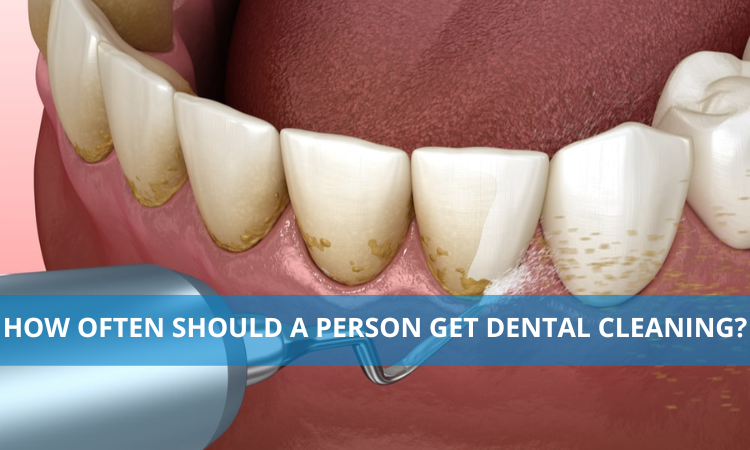
Routine dental cleanings are necessary for maintaining good oral health. Discover the advantages of routine cleanings and how frequently you should visit the dentist. A healthy smile can improve your self-confidence and overall well-being.
Maintaining good oral health requires regular dental cleanings. Regular cleanings aid in the prevention of gum disease, the removal of plaque and tartar accumulation, and the possibility for early issue detection and treatment by your dentist. But how frequently should you visit the dentist?
At least once every six months, the American Dental Association advises getting a routine cleaning at the dentist. However, the cleaning frequency may change depending on personal demands and risk factors. Here is a closer look at the elements that affect how frequently you ought to visit the dentist.
Factors Associated with Tooth Decay and Gum Disease
When deciding how frequently you should get dental cleanings, your dentist will take into account a number of criteria, including:
· Gum disease: More frequent cleanings could be necessary if you have gum disease to keep the situation under control.
· Use of tobacco: If you smoke or use chewing tobacco, you may need more frequent cleanings because tobacco use can raise your risk of tooth decay and gum disease.
· Poor oral hygiene: You may require more frequent cleanings to remove plaque and tartar accumulation if you don't brush and floss consistently.
· Medical issues: Some medical problems, such as diabetes, and dry mouth, can raise your risk of gum disease and tooth decay. Your dentist could advise more frequent cleanings if you have a medical condition that affects your dental health.
Dental Cleaning Types
Deep cleanings and routine cleanings are two different forms of dental cleanings. Prophylaxis, referred to as routine cleaning, is a periodical cleaning to get rid of plaque and tartar buildup. Patients with gum disease are advised to get a deep cleaning, referred to as scaling and root planing. To prevent bacteria from accumulating, the dentist will smooth the teeth's roots and remove plaque and tartar from both above and below the gum line during a deep cleaning.
Benefits of Routine Dental Cleanings
Your oral health gains from routine dental cleanings in a number of ways, including:
· Your dentist can spot and address issues like cavities and gum disease during a cleaning before they worsen.
· By removing plaque and tartar accumulation, routine cleanings can help make your breath more pleasant.
· Certain meals and beverages over time can discolour your teeth. These stains may be removed, and your teeth can stay bright and white with routine cleanings.
· Gum disease has been linked in studies to a number of major health issues, such as diabetes, heart disease, and stroke. Regular cleanings can enhance your general health by keeping your gums healthy.
Conclusion
For routine dental cleaning, the American Dental Association advises visiting the dentist at least once every six months. However, the cleaning frequency may change depending on personal demands and risk factors. Maintaining good oral health, avoiding issues, and improving your general health can all be facilitated by routine dental cleanings. Plan your next dental cleaning immediately, so you don't ignore your oral health.

Dr Amna Bilal
The author is a contributing writer at Dental News Pakistan and can be reached at amna0795@yahoo.com

